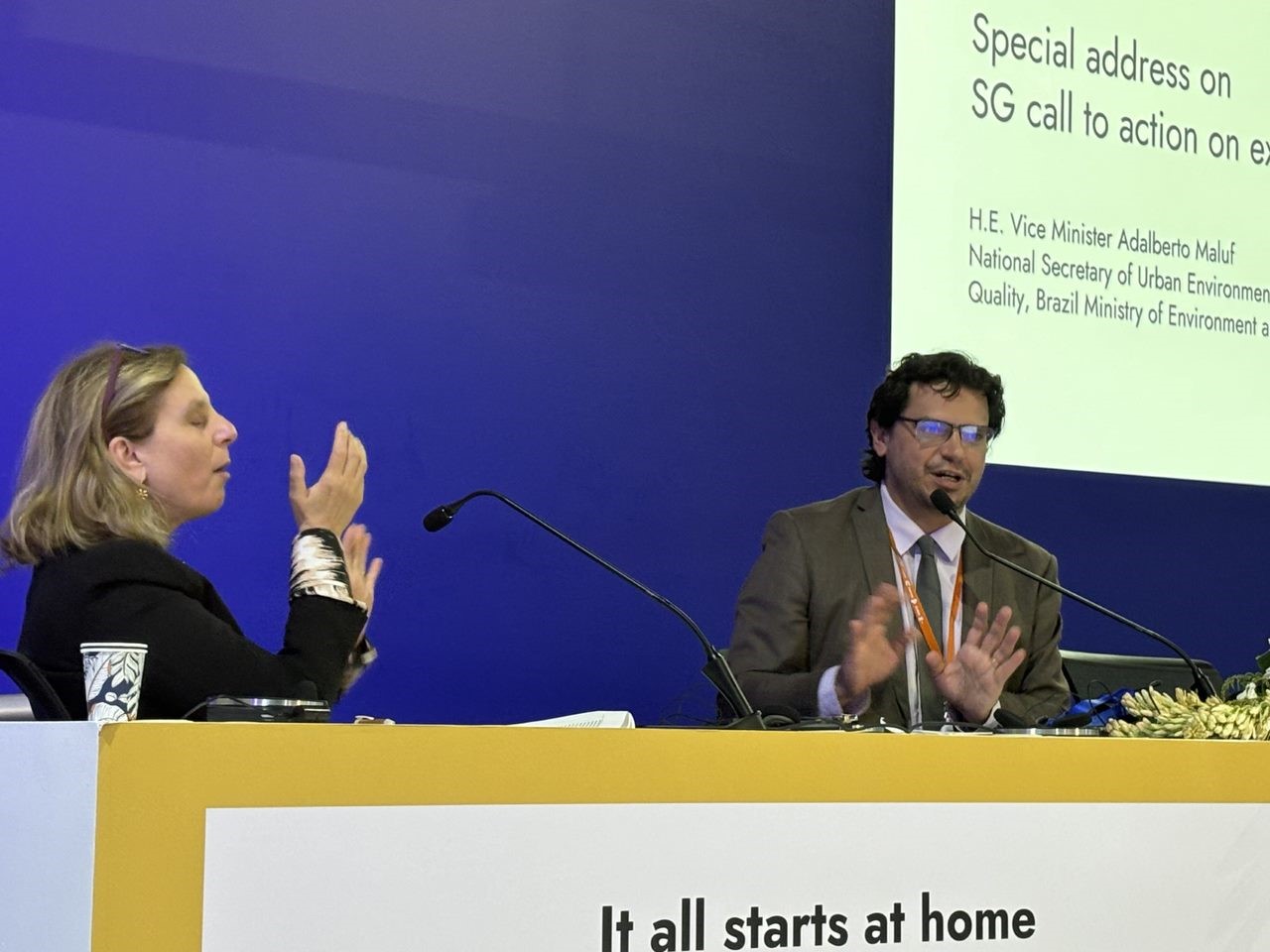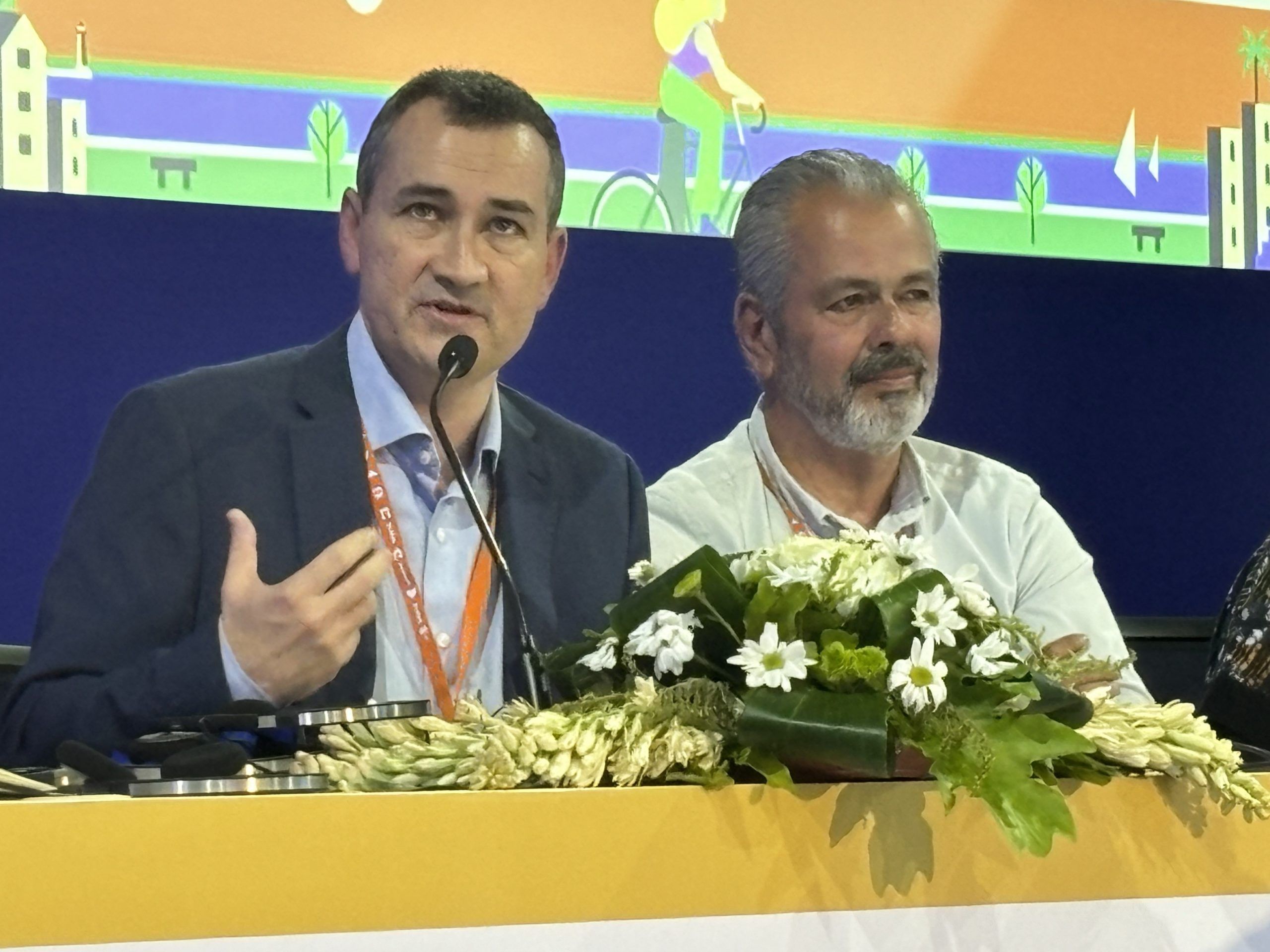12th World Urban Forum
Cooling the climate crisis: cities pave the way to a cooler future
Date/Time: Thursday, November 7, 2024
Location: Multipurpose Room 9, Egypt International Exhibition Center, Cairo, Egypt
The world is facing extreme, record-breaking temperatures. UN Secretary-General António Guterres on 25 July 2024, issued a global call to action on extreme heat, noting that “extreme heat amplifies inequality, inflames food insecurity, and pushes people further into poverty.” Cities around the world are facing an urgent new challenge: keeping their citizens cool in a warming climate.
This week, at the 12th World Urban Forum, held in Cairo from 4 to 8 November, UN-Habitat and the United Nations Environment Programme (UNEP)-led Cool Coalition, hosted government leaders, urban planners, and sustainability experts to discuss how to address extreme heat through sustainable cooling solutions.
The Cooling the Climate Crisis: Turning the Global Cooling Pledge into Urban Impact event provided a platform for countries and cities to share how they are addressing extreme heat, and how there are implementing the Global Cooling Pledge – a joint initiative between the UNEP-led Cool Coalition and UAE COP28 Presidency – to meet growing cooling demand and increase access to cooling while cutting emissions.
The pledge – endorsed by 71 Member States, 60 non-state actors and 7 cities – aims to raise ambition and international cooperation through collective global targets to reduce cooling related emissions by 68% from today by 2050, increase access to sustainable cooling by 2030, and increase the global average efficiency of new air conditioners by 50%.
“We must respond by massively increasing access to low-carbon cooling; expanding passive cooling – such as natural solutions and urban design; and cleaning up cooling technologies while boosting their efficiency”. – UN Secretary-General António Guterres
Moderated by UN Chief Heat Officer, UN-Habitat, Ms. Eleni Myrivili, the session opened with a welcome from Ms. Elizabeth Mrema, Deputy Executive Director of UNEP, who underscored the importance of urban cooling as cities become hotter and more densely populated.
“With cities warming at twice the rate of the global average, equitable access to cooling has become essential to both climate adaptation and public health” – Ms. Elizabeth Mrema, Deputy Executive Director, UNEP
H.E. Vice Minister Adalberto Maluf, Brazil’s National Secretary of Urban Environment and Environmental Quality at the Ministry of Environment and Climate Change, delivered a special address outlining Brazil’s commitment to integrating nature-based solutions (NbS) to combat urban heat:
“Our priority at COP30 is to focus on urban areas in the Amazon, not only reducing emissions but transforming grey spaces to green.”
Spotlight on cooling champions
Throughout the event, city leaders showcased how they are pioneering new and innovative solutions to address extreme heat
- Mr. Rodrigo Ravena, Secretary of the Environment of São Paulo, Brazil, noted that “climate impact assessments are now a standard part of new urban development, reinforcing Sao Paulo’s commitment to sustainable adaptation measures”.
- Former Mayor of Quito, Mr. Mauricio Rodas, advocated for equitable financing mechanisms, highlighting the need for cities to have resources that support heat action, especially in vulnerable communities.
- Mr. David Martínez, Chief City Planner of Barcelona, Spain, discussed the challenges of retrofitting older buildings for cooling, especially in peripheral areas where private ownership complicates the process.
- Dr. Folayinka Dania, Chief Resilience Officer of Lagos, Nigeria, remarked on the city’s unique challenges due to extreme heat and coastal flooding, noting that affordable, energy-efficient cooling is crucial to supporting Lagos’s rapidly growing population.
- Ms. Shabari Shaily-Gerber, Head of Urban Economic Development at the British High Commission in South Africa, referenced specific projects that align with the commitments of the Global Cooling Pledge, calling for the need for stronger partnerships to address the diverse cooling challenges faced by cities across regions.
Translating the Global Cooling Pledge into Urban Impact
The Global Cooling Pledge, launched in December 2023 during the United Nations Climate Change Conference – COP28, has gathered significant momentum as a multi-level governance framework that encourages national governments to support subnational cooling initiatives. Since its inception, pledge signatories have collectively committed to reducing cooling sector emissions by 78 billion tons of CO₂ by 2050. The pledge also aligns with broader goals under the Kigali Amendment and the Paris Agreement, helping drive action at both national and local levels.
Ms. Gulnara Roll, Head of UNEP’s Cities Unit, called for continued collaboration across sectors and urged more countries to endorse the pledge, noting that “by exchanging best practices, we can better meet our Paris Agreement commitments and build climate resilience across cities.”
The event demonstrated how national and local governments can work together to tackle the climate crisis by promoting innovative and sustainable cooling solutions. With pathways now established, the UNEP-led Cool Coalition and its partners are calling on more countries and cities to join the Global Cooling Pledge and invest in resilient, sustainable cooling strategies for a warming world.
Discover how your city or organization can contribute by visiting [Global Cooling Pledge – Cool Coalition] for more information, or emailing [email protected] and [email protected].



